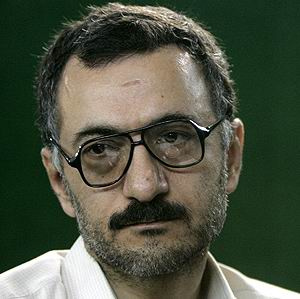Those who say economy’s dependence on oil income has decreased are lying
The oil price is falling in global markets and the head of Iran Central Bank has warned of its consequences on Iran economy . Here is an interview with the economist, Saeed Leylaz, on the issue.

The oil price is falling in global markets and the head of Iran Central Bank has warned of its consequences on Iran economy . Here is an interview with the economist, Saeed Leylaz, on the issue.
The Iranian government does not want to accept the fact that Iran’s economy is totally dependent on oil income. Why is it so?
The truth is cruelly imposing itself on Iranian government. There is no choice. Mr.Bahmani, the head of Iran Central Bank was the last official admitting the serious vulnerability of Iran’s economy in oil price falling. Anyhow, even his admittance was made passively. Right now, the question is why the Iranian government is not responding to this big change? The answer is that in the past three years, Iran’s dependence on oil income –whether in state budget or in economic structure as a whole-has risen in such a way that there is no chance of being flexible against the oil price fall. This is what Ahmadinejad’s government has done. Right now, 100 percent of the state oil income is being spent inside the country and when there is a cent fall in oil price, Iran’s economy is hurt. We have no ability to be flexible on the issue.
A while ago, state media claimed economy’s dependence to oil income has been decreased during Ahmadinejad’s presidency. Do you think so?
It is a big lie. In the last years of Khatami’s presidency, Iran oil income was 38 billion dollars and now it is 76 billion dollars, which means it has been more than doubled. In the same time, GDP increased 25 percent .If we compare the last year of Khatami’s presidency with the years of Ahmadinejad being at office, we would see that Iran’s dependence on oil income has had an increase of 75 to 80 percent.
What are the outcomes of oil price fall for Iran?
A decrease of imports, an increase of customs duties, state budget deficit, more pressure for tax incomes, the currency being double priced, state weakness in offering services especially in paying state employees and the retired, a decrease of construction spending, high inflation, low economic growth, high rate of unemployment and economic recession are the consequences of oil price fall which would be much evident from next spring on.
Do you think OPEC’s decision in keeping oil prices on 80 dollars a barrel would help Iran?
OPEC can not highly insert its influence. When the OPEC members are convinced that this or that decision will do good for their national interest, they would not hesitate in production increase or decrease. Nowadays Iran’s oil export has been decreased. Assume that in the next OPEC meeting, the decision be a decrease of export. Iran would accept that, but it would make no difference for Iran. Nowadays Iran’s oil export is 300 thousand barrels less than the last days of Khatami’s presidency.

